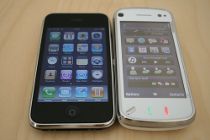ICT can be a solution to climate change
An issue that has gone largely unpublicised during the 16th Conference of Parties (COP16) in Cancun is the subject of information and communication technology (ICT) solutions and how they can mitigate climate change.

An issue that has gone largely unpublicised during the 16th Conference of Parties (COP16) in Cancun is the subject of information and communication technology (ICT) solutions and how they can mitigate climate change.
During this year's climate summit, the Green Solutions@COP16 exhibition has been formed to combat this problem. Running from the 5th-8th December at the Coral Beach Hotel in Cancun, the goal of the Green Solutions@COP16 exhibition is to present ICT success stories on climate change, and provide a channel for meetings between the governments and the private sector.
Today, CEOs and a ministerial panel discuss how improvements in ICT can play a role in fighting climate change. Hans Vestberg, President and CEO of Ericsson, will be participating from Sweden via video link, reducing his CO2 emissions through the use of ICT.
Ahead of the event Vestberg was quoted by tradingmarkets.com on 3rd December, as saying: "Introducing ICT solutions in all sectors of society allows us to shift the climate change discussion. Rather than only focusing on reducing emissions we can look forward and start changing our ways of doing things. We need a large-scale transformative change and shift from a physical to an information-based infrastructure."
His views are echoed in an International Telecommunications Union (ITU) report entitled Using ICTs to Tackle Climate Change, which was released on 7th December as part of the Global e-Sustainability Initiative.
The ITU report examined tangible ways that ICT companies can offer benefits such as reducing travel through online videoconferencing, reducing paper use with e-ticketing, e-billing and online media.
"ICTs are uniquely powerful tools for reducing emissions in every other sector. They also play an essential role in climate science," said ITU Secretary-General Hamadoun Touré yesterday to V3.co.uk.
A universal, energy-efficient, mobile phone charger was one of the examples highlighted in the ITU report of how the technology sector can deliver benefits to the consumer and reduce waste. According to Touré, it wasn't just the mobile phone companies that provide such opportunities.
"They (ICTs) offer one the most significant opportunities to reduce greenhouse gas emissions, especially in industries that are among the highest producers of CO2, such as energy generation, waste disposal, construction and transport," Touré said.
Currently, ICTs generate emissions in their manufacture and disposal but there is no agreed methodology for measuring how ICTs produce or reduce emissions. Additionally, ICTs are not included in national or international plans for mitigating climate change. Such an inclusion could result in an increased investment in improving ICT in the developing world, as well as helping to curb greenhouse gases in developed nations.
"I call on the international community to recognise that ICTs must be a key component of efforts to mitigate climate change, and that's ICTs support what climate change threatens most: sustainable development," said Touré.
With the conclusion of the Green Solutions@COP16 exhibition today, both Hans Vestberg and Hamadoun Touré will be hoping that the international community can work ICTs into an overall agreement by Friday.
Author: Leroy Robinson | Climate Action
Image: William Hook | Flickr






